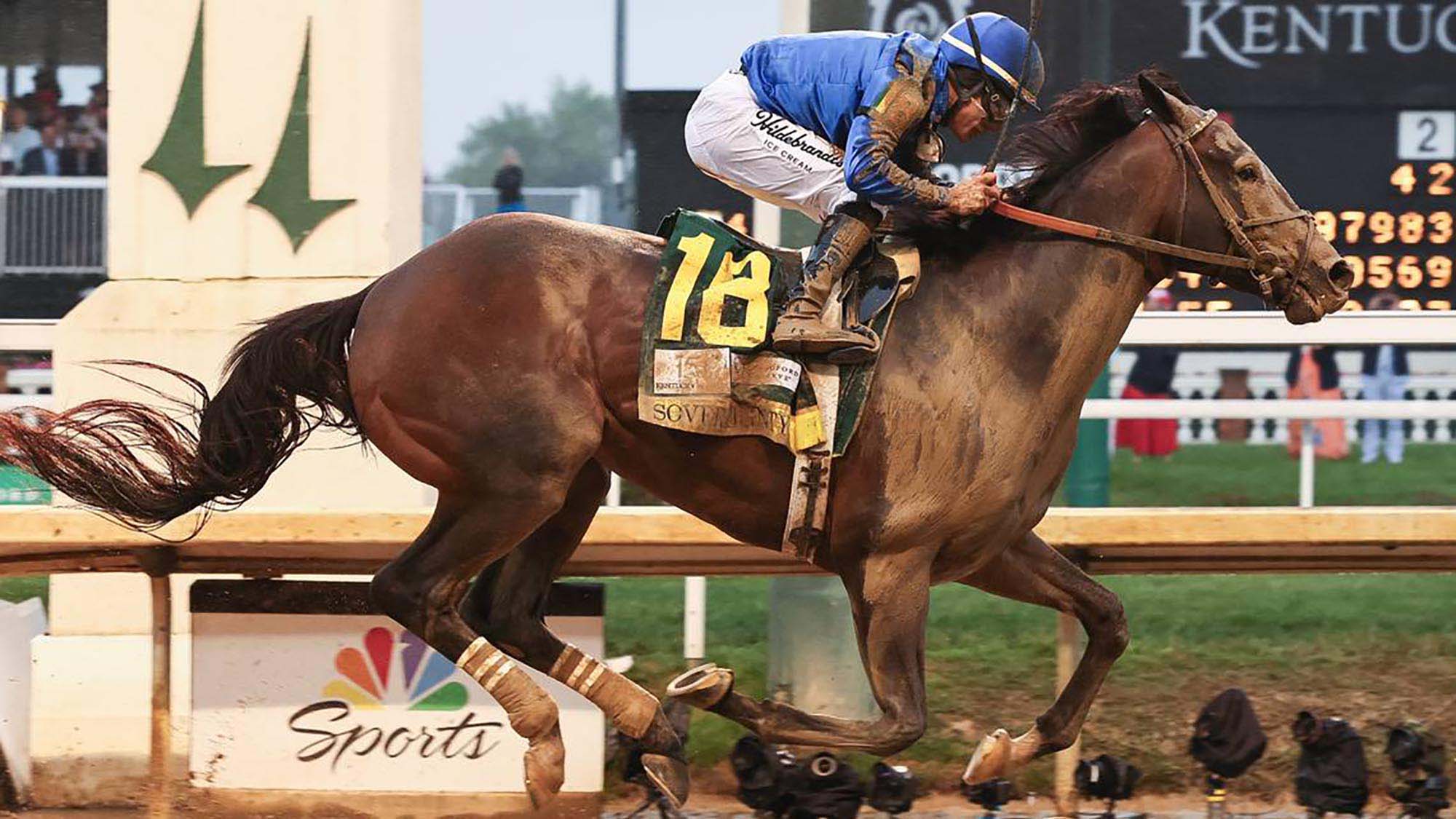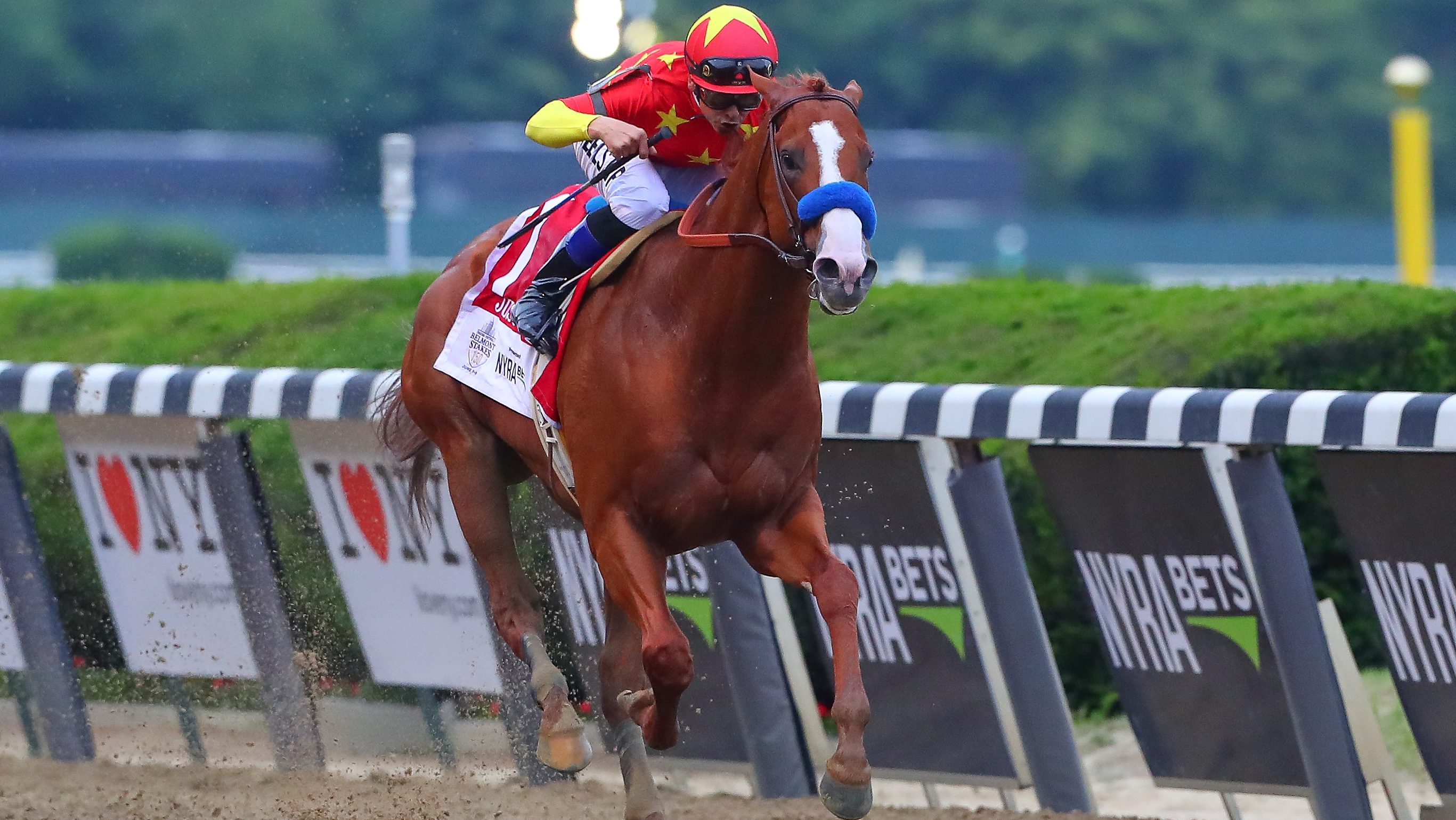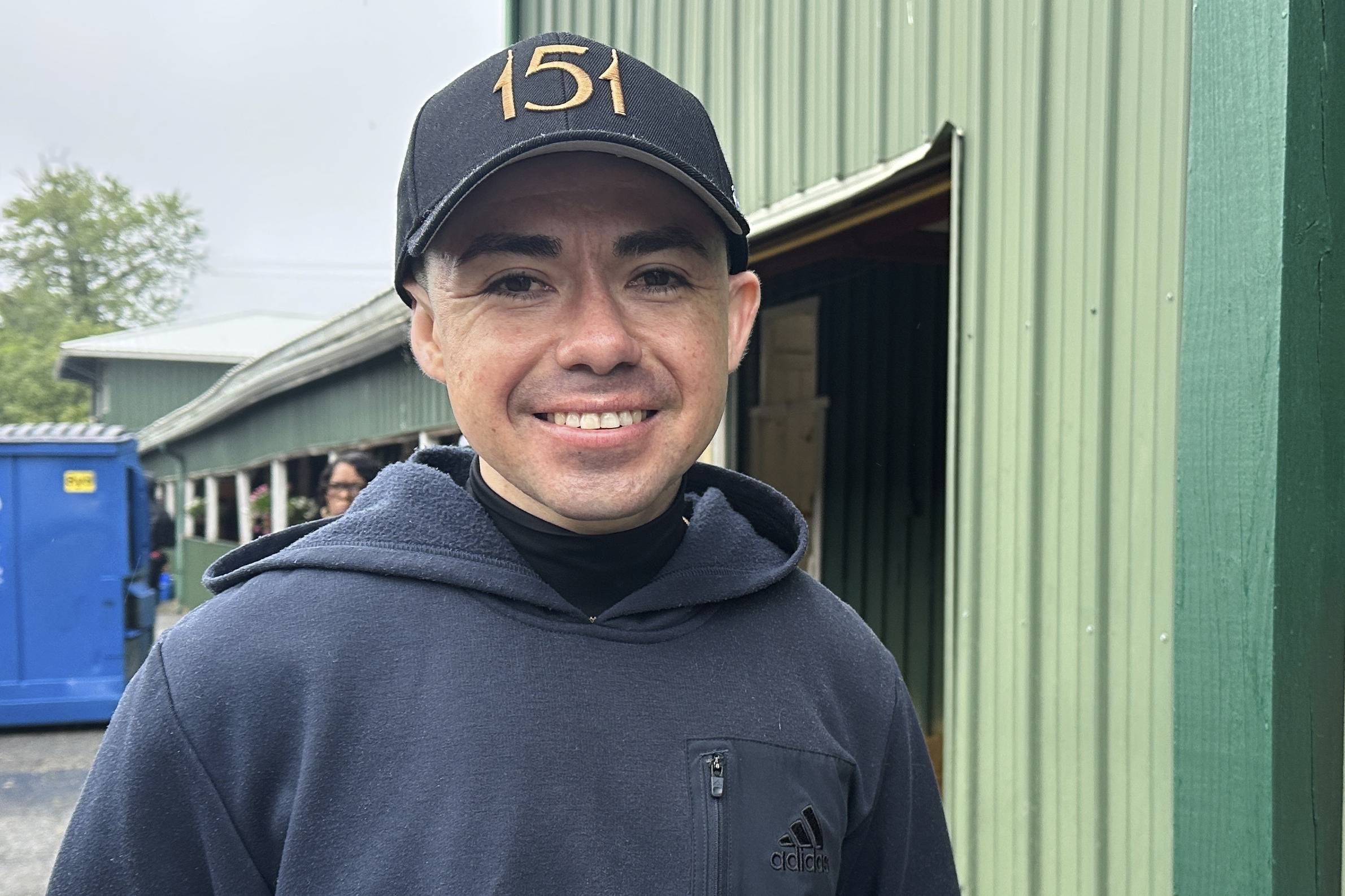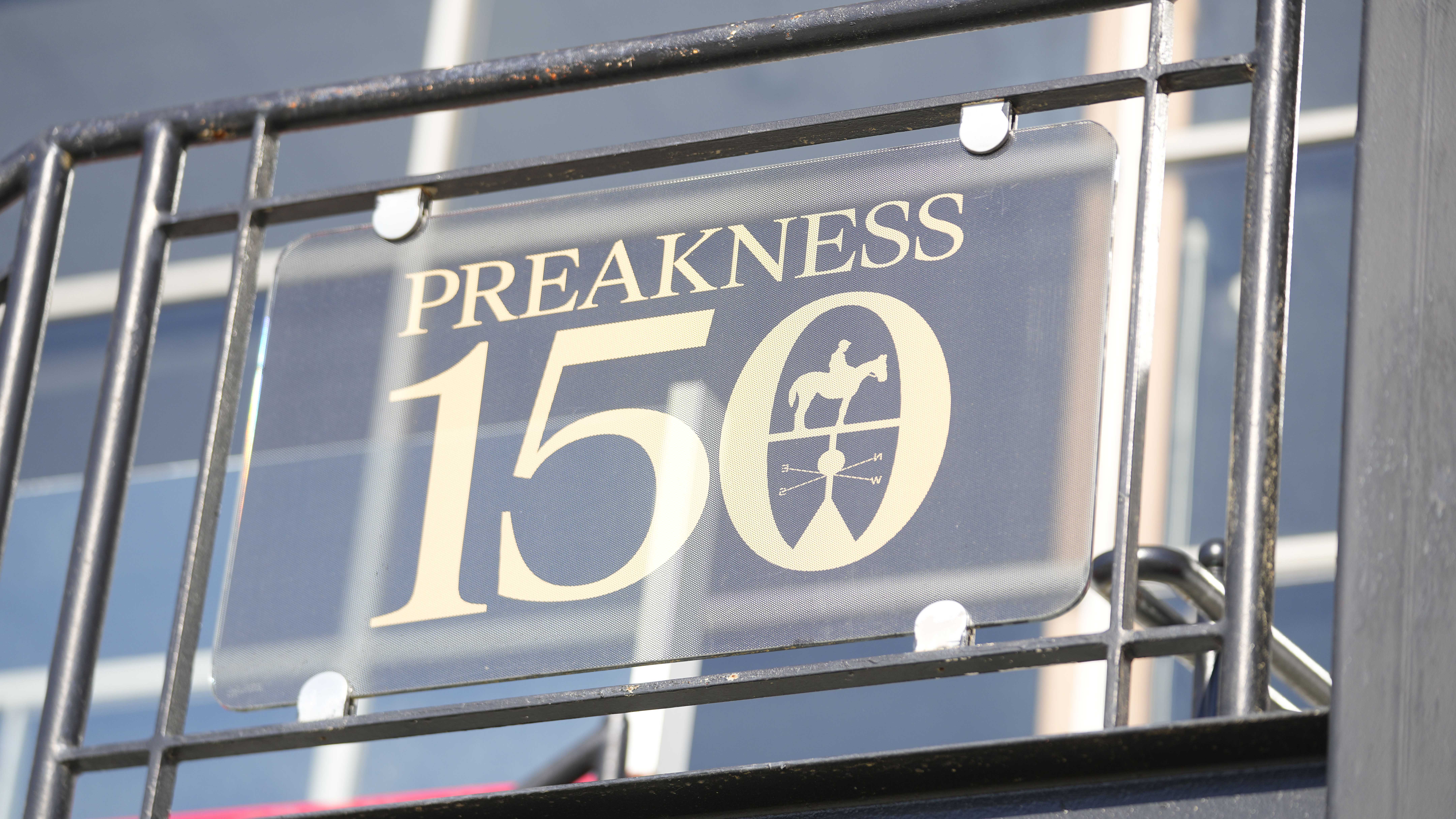Kentucky Derby Winner Sovereignty Skips Preakness: What's Next?
Sovereignty's Shocking Skip: No Preakness, Triple Crown Dream Derailed!
Introduction: The Crown Crumbles Before the Second Jewel
Well, folks, the racing world just got a whole lot more interesting! We’ve all been buzzing about Sovereignty's impressive Kentucky Derby win, dreaming of a possible Triple Crown. But hold your horses (pun intended!), because the dream has been put on hold. Sovereignty, the Derby champion, will not be competing in the Preakness Stakes. That's right; the bid for the Triple Crown is off the table, at least for this year. So, what happened? Let's dive into the details of this unexpected turn of events.
The Official Announcement: A Bolt From the Blue
Mike Rogers, executive VP of 1/ST Racing, which operates the Preakness Stakes, confirmed the news on Tuesday. "We received a call today from trainer Bill Mott that Sovereignty will not be competing in the Preakness," Rogers stated. "We extend our congratulations to the connections of Sovereignty and respect their decision." A respectful statement, but a shocking blow nonetheless. Think of it as a perfectly laid plan suddenly hitting a roadblock. We've all been there, haven't we?
Bill Mott's Master Plan: Belmont or Bust?
So, why the sudden change of heart? It all boils down to strategy. Trainer Bill Mott has his sights set on a different jewel: the Belmont Stakes, to be held on June 7 at Saratoga Race Course in upstate New York. Mott had hinted at this possibility on Sunday, suggesting that the long-term interests of the horse were paramount.
Long-Term Vision vs. Short-Term Glory
Choosing the Belmont over the Preakness is a bold move. It suggests that Mott is thinking beyond the immediate allure of a Triple Crown run, prioritizing Sovereignty's well-being and future potential. But is it the right call? Time will tell.
The Preakness Without Sovereignty: A New Landscape
With Sovereignty out of the picture, the Preakness Stakes becomes a wide-open affair. Who will step up to fill the void? Which horse will seize the opportunity to claim victory at Pimlico? The possibilities are endless! It's like a movie where the lead actor suddenly drops out, giving the supporting cast a chance to shine.
Potential Preakness Contenders
Here are some horses that might be aiming to fill the winner's circle at the Preakness:
- Mystik Dan (likely to be a favorite)
- Mugatu
- Just Steel
- Seize the Grey
- Imagination
The Belmont Beckons: A Saratoga Showdown
Instead of the Preakness, Sovereignty's team has their eyes firmly fixed on the Belmont Stakes, now being held at Saratoga this year. This grueling 1 1/4-mile race, often referred to as the "Test of the Champion," is a completely different challenge. It will be interesting to see how Sovereignty performs on this unique surface.
Why Saratoga? The Temporary Change of Venue
Due to renovations at Belmont Park, the 2024 Belmont Stakes will be held at Saratoga Race Course. This change adds an extra layer of intrigue to the race. Will the change affect the horses or the trainers strategies?
Triple Crown Drought Continues: Seven Years and Counting
Sovereignty's withdrawal means that the Triple Crown drought continues. It's been seven long years since Justify accomplished the feat in 2018. The question on everyone's mind is: When will we see another Triple Crown winner?
The Elusive Triple Crown: A Matter of Luck or Strategy?
Winning the Triple Crown is arguably one of the most difficult feats in sports. Is it a matter of having the right horse, the right strategy, or just plain luck? Perhaps it's a combination of all three. One thing is certain: it requires a truly exceptional horse.
The Impact on Betting Odds: A Shifting Landscape
Sovereignty's absence will undoubtedly impact the betting odds for both the Preakness and the Belmont Stakes. Bettors will need to re-evaluate their strategies and consider the new dynamics of each race. This is where it gets really interesting, isn’t it?
Where to Place Your Bets (Responsibly!)
Several reputable online betting platforms offer odds on horse races. However, it's important to gamble responsibly and only bet what you can afford to lose. Here are a few options to consider:
- TwinSpires
- TVG
- FanDuel Racing
The Horse's Perspective: Is Sovereignty Ready for More?
Ultimately, the decision to skip the Preakness likely comes down to what's best for Sovereignty. A horse's well-being is paramount, and a trainer must carefully assess their horse's physical and mental condition before committing to a race. Is Sovereignty truly ready for the rigors of the Triple Crown, or does he need more time to recover and prepare?
Listening to Your Horse: A Trainer's Intuition
A good trainer has an almost intuitive understanding of their horse. They can sense when a horse is feeling good, when they're tired, and when they need a break. Mott's decision suggests that he's listening to Sovereignty and prioritizing his long-term health.
Fan Reactions: Disappointment and Debate
As you can imagine, the news has been met with mixed reactions from fans. Some are disappointed that they won't see Sovereignty compete for the Triple Crown, while others support Mott's decision to prioritize the horse's well-being. The debate rages on social media and in the comment sections of news articles.
#Sovereignty #Preakness #BelmontStakes: The Social Media Buzz
Social media is buzzing with opinions on Sovereignty's decision. Fans are using hashtags like #Sovereignty, #Preakness, and #BelmontStakes to express their thoughts and engage in discussions about the future of the Triple Crown.
What's Next for Sovereignty? Gearing Up for the Belmont
The focus now shifts to the Belmont Stakes. Mott will be working tirelessly to prepare Sovereignty for this demanding race. We can expect to see the horse training at Saratoga, fine-tuning his fitness and getting accustomed to the track.
Training Regimen: Preparing for the "Test of the Champion"
The Belmont Stakes is known as the "Test of the Champion" for a reason. It requires a horse with exceptional stamina and the ability to handle the distance. Sovereignty's training regimen will likely involve long gallops, stamina-building exercises, and careful monitoring of his physical condition.
Historical Context: The Rarity of the Triple Crown
It's worth remembering just how rare it is to win the Triple Crown. Only 13 horses in history have accomplished the feat, and it requires a combination of talent, luck, and impeccable timing. The last Triple Crown winner, Justify, broke a 37-year drought, highlighting the immense challenge involved.
Remembering Racing Legends: Past Triple Crown Heroes
From Secretariat to American Pharoah, the names of Triple Crown winners are etched in racing history. These horses become legends, inspiring generations of fans with their incredible talent and unwavering determination. Who will be the next horse to join their ranks?
Conclusion: A Strategic Retreat, A Future Focus
So, Sovereignty's Triple Crown bid is over before it even began, but the story is far from finished. Trainer Bill Mott's decision to skip the Preakness and focus on the Belmont Stakes is a strategic move, prioritizing the horse's long-term health and potential. While disappointing for some fans, it's a reminder that horse racing is about more than just winning; it's about the well-being of these magnificent animals. We can't wait to see what Sovereignty accomplishes in the Belmont – and beyond!
Frequently Asked Questions
- Why did Sovereignty skip the Preakness?
Trainer Bill Mott decided to skip the Preakness to focus on preparing Sovereignty for the Belmont Stakes, prioritizing the horse's long-term health and potential.
- Where will the Belmont Stakes be held in 2024?
Due to renovations at Belmont Park, the 2024 Belmont Stakes will be held at Saratoga Race Course in upstate New York.
- When was the last Triple Crown winner?
The last Triple Crown winner was Justify in 2018.
- What are some of the challenges of winning the Triple Crown?
Winning the Triple Crown requires a horse to win three demanding races in a short period, testing their stamina, speed, and resilience. It also involves navigating different track conditions and facing tough competition.
- Who are some other potential contenders for the Preakness Stakes?
Some potential contenders for the Preakness Stakes include Mystik Dan, Mugatu, Just Steel, Seize the Grey, and Imagination.



